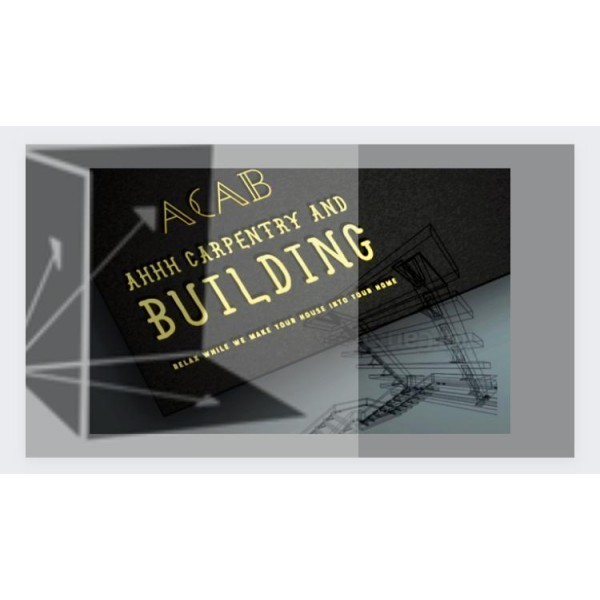Garage Conversions in St Ives
Search Garage Conversions in places nearby
Understanding Garage Conversions in St Ives
Garage conversions in St Ives have become a popular choice for homeowners looking to maximise their living space without the hassle of moving. This charming coastal town offers a unique blend of historical architecture and modern living, making it an ideal location for such transformations. Whether you're considering a new home office, a guest bedroom, or a playroom, converting your garage can be a cost-effective and efficient solution.
The Benefits of Garage Conversions
Garage conversions offer numerous benefits, making them an attractive option for many homeowners. Firstly, they can significantly increase the value of your property. By transforming an underutilised space into a functional room, you can enhance your home's appeal to potential buyers. Additionally, garage conversions provide extra living space without the need for an extension, which can be both time-consuming and expensive.
Increased Property Value
One of the primary advantages of a garage conversion is the potential increase in property value. In St Ives, where property prices are on the rise, adding an extra room can make your home more desirable. According to property experts, a well-executed garage conversion can add up to 20% to the value of your home.
Cost-Effective Solution
Compared to building an extension, garage conversions are a more affordable option. They utilise existing structures, reducing the need for extensive construction work. This not only saves money but also minimises disruption to your daily life.
Versatile Living Space
Garage conversions offer flexibility in terms of design and functionality. Whether you need an additional bedroom, a home office, or a gym, the possibilities are endless. This adaptability makes garage conversions a practical choice for growing families or those with changing needs.
Planning and Regulations
Before embarking on a garage conversion in St Ives, it's essential to understand the planning and regulatory requirements. While some conversions may not require planning permission, others might, depending on the scope of the project and local regulations.
Planning Permission
In many cases, garage conversions fall under permitted development rights, meaning you won't need planning permission. However, if your property is in a conservation area or if the conversion involves significant structural changes, you may need to apply for permission. It's always best to consult with the local planning authority to ensure compliance.
Building Regulations
Regardless of whether planning permission is required, all garage conversions must comply with building regulations. These regulations ensure that the conversion is safe, energy-efficient, and suitable for habitation. Key areas to consider include insulation, ventilation, fire safety, and structural integrity.
Design Considerations
Designing your garage conversion is an exciting part of the process. It's an opportunity to create a space that reflects your personal style and meets your specific needs. Here are some key design considerations to keep in mind:
Layout and Functionality
Think about how you intend to use the space and plan the layout accordingly. Consider factors such as natural light, access, and storage. A well-thought-out design will ensure that the conversion is both functional and aesthetically pleasing.
Lighting and Ventilation
Garages often lack natural light and ventilation, so it's important to address these issues during the conversion. Consider installing windows or skylights to maximise natural light. Additionally, ensure that the space is adequately ventilated to prevent dampness and improve air quality.
Insulation and Heating
Proper insulation is crucial for maintaining a comfortable temperature in your converted garage. Insulate the walls, floor, and ceiling to prevent heat loss. Additionally, consider installing a heating system to ensure the space is warm and inviting year-round.
Choosing the Right Professionals
While some homeowners may choose to undertake a garage conversion as a DIY project, hiring professionals can ensure a high-quality finish and compliance with regulations. When selecting a contractor, consider their experience, reputation, and portfolio of previous work.
Architects and Designers
An architect or designer can help you create a detailed plan for your conversion, taking into account your needs and budget. They can also assist with obtaining planning permission and ensuring compliance with building regulations.
Builders and Contractors
Choose builders and contractors with experience in garage conversions. Check references and reviews to ensure they have a track record of delivering quality work on time and within budget.
Budgeting for Your Garage Conversion
Setting a realistic budget is a crucial step in the garage conversion process. Costs can vary depending on the size of the garage, the complexity of the design, and the materials used. It's important to factor in all potential expenses, including planning fees, building materials, labour, and furnishings.
Cost Breakdown
| Item | Estimated Cost |
|---|---|
| Planning and Design | £1,000 - £3,000 |
| Building Materials | £5,000 - £10,000 |
| Labour | £3,000 - £7,000 |
| Furnishings | £1,000 - £5,000 |
Contingency Fund
It's wise to set aside a contingency fund to cover unexpected expenses. A buffer of 10-15% of the total budget can provide peace of mind and ensure that the project stays on track.
Common Challenges and Solutions
Like any home improvement project, garage conversions can present challenges. However, with careful planning and the right approach, these challenges can be overcome.
Structural Issues
Older garages may have structural issues that need to be addressed before conversion. This could include repairing cracks, reinforcing walls, or replacing the roof. A thorough inspection by a structural engineer can identify potential problems and recommend solutions.
Limited Space
Garages are often smaller than other rooms in the house, which can limit design options. To make the most of the available space, consider using multifunctional furniture and clever storage solutions. Built-in shelving and fold-away furniture can maximise space without compromising on style.
Access and Integration
Integrating the converted garage with the rest of the house can be challenging, especially if the garage is detached. Consider creating a seamless transition by matching flooring and decor with the adjoining rooms. Additionally, ensure that the new space is easily accessible from the main living areas.
Environmental Considerations
As sustainability becomes increasingly important, many homeowners are looking for ways to make their garage conversions more environmentally friendly. This can be achieved through the use of sustainable materials, energy-efficient appliances, and eco-friendly design practices.
Sustainable Materials
Opt for sustainable building materials, such as reclaimed wood or recycled metal, to reduce the environmental impact of your conversion. Additionally, consider using low-VOC paints and finishes to improve indoor air quality.
Energy Efficiency
Incorporate energy-efficient features into your design, such as LED lighting, double-glazed windows, and high-efficiency insulation. These measures can reduce energy consumption and lower utility bills.
Water Conservation
If your conversion includes a bathroom or kitchenette, consider installing water-saving fixtures, such as low-flow taps and dual-flush toilets. These can help conserve water and reduce your environmental footprint.
Case Studies: Successful Garage Conversions in St Ives
To inspire your own project, let's take a look at some successful garage conversions in St Ives. These case studies showcase the creativity and innovation that can be achieved with a well-planned conversion.
Home Office Haven
One homeowner transformed their single-car garage into a stylish home office. By incorporating large windows and skylights, they created a bright and airy workspace. The addition of built-in shelving and a custom desk maximised functionality without sacrificing style.
Cosy Guest Suite
Another family converted their double garage into a cosy guest suite, complete with a bedroom, bathroom, and kitchenette. By using neutral colours and soft furnishings, they created a welcoming space for visitors. The addition of a private entrance ensured privacy for both guests and hosts.
Children's Playroom
A young family turned their garage into a vibrant playroom for their children. Bright colours, durable flooring, and plenty of storage made it the perfect space for play and creativity. The inclusion of a reading nook and art station encouraged learning and exploration.
Frequently Asked Questions
Do I need planning permission for a garage conversion in St Ives?
In many cases, planning permission is not required for garage conversions, as they fall under permitted development rights. However, it's always best to check with the local planning authority, especially if your property is in a conservation area.
How long does a garage conversion take?
The duration of a garage conversion can vary depending on the complexity of the project. On average, it takes between 4 to 6 weeks to complete a standard conversion.
Can I convert a detached garage?
Yes, detached garages can be converted into functional living spaces. However, additional considerations, such as access and integration with the main house, may need to be addressed.
How much does a garage conversion cost?
The cost of a garage conversion can vary widely depending on factors such as size, design, and materials. On average, homeowners can expect to spend between £10,000 and £20,000.
Will a garage conversion add value to my home?
Yes, a well-executed garage conversion can add significant value to your home. It provides additional living space, which is attractive to potential buyers.
What are the building regulations for garage conversions?
Building regulations for garage conversions cover areas such as insulation, ventilation, fire safety, and structural integrity. It's important to ensure compliance to guarantee the safety and suitability of the converted space.
In conclusion, garage conversions in St Ives offer a fantastic opportunity to enhance your living space and increase the value of your home. With careful planning, design, and execution, you can create a functional and stylish room that meets your needs and complements your lifestyle. Whether you're looking to create a home office, guest suite, or playroom, a garage conversion can provide the perfect solution.














